You might be surprised to find out that not all headaches are the same – there are actually a variety of different types of headaches, which are caused by different things and can feel slightly different as well.
Knowing which type of headache you have can make it much easier to treat. Here are the different types of headaches, as well as some of the best ways to find fast headache relief.
Types of Headaches
Whether you experience headaches frequently or you only experience them every once in a while, it’s helpful to be able to recognize the symptoms of each type of headache. These are the most common types of headaches, but keep in mind that there are many different things that can cause a headache. If you are getting headaches frequently, you should see a doctor for further assistance.
1. Tension headache:
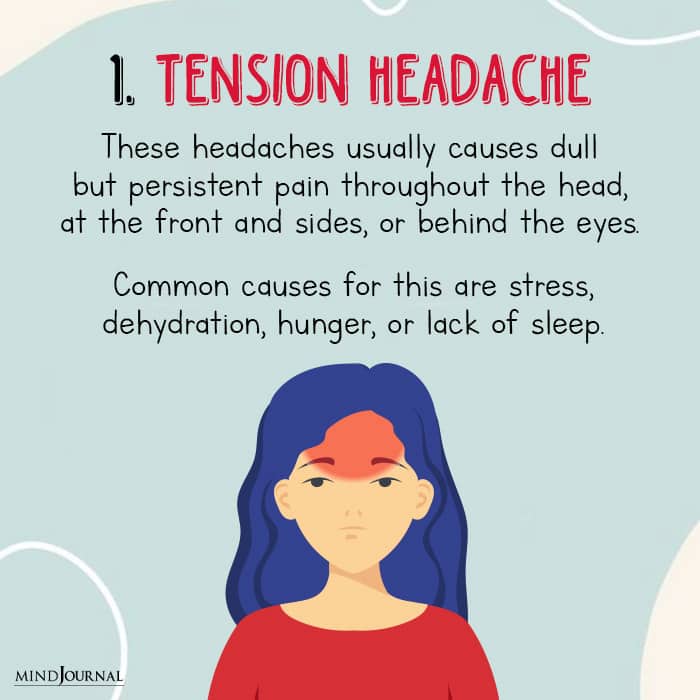
A tension headache is the most common type of headache, and most people experience them every so often. These headaches usually present themselves a dull but persistent pain throughout the head, usually at the front and sides. You may also experience discomfort or pain behind the eyes. The time period of a tension headache can vary widely, from less than an hour to multiple days.
There are many things that can cause a tension headache. A very common cause is -+. Taking care of your health is the best way to prevent tension headaches. They can also be ca+used by loud noises or other strong external stimuli.
2. Migraine:

Migraines are a much more serious type of headache that is very common as well, although not as much as a tension headache. Migraines are usually very painful and are centered on one side of the head. Nausea is very common, as is a sensitivity to external stimuli.
Many people who experience migraines get auras along with them. Auras differ from person to person, but they typically occur at the beginning of the migraine and consist of a partial loss of vision along with seeing spots, flickers, or moving lines. Auras are often accompanied by numbness, as well as difficulty speaking in more extreme cases.
Most people who get migraines experience them multiple times throughout their life. They can be triggered by stress, hormones, and other indicators of poor health. It’s also common for migraines to be passed down through multiple generations.
3. Cluster headaches:

These are strong, painful headaches characterized by a painful burning or stabbing sensation behind one eye. Cluster headaches often happen rapidly within a short period of time. They are much more common in men than women. You might also notice a watering or swollen eyelid as well as a runny nose.
4. Exertional headaches/ Giant Cell Arteritis:
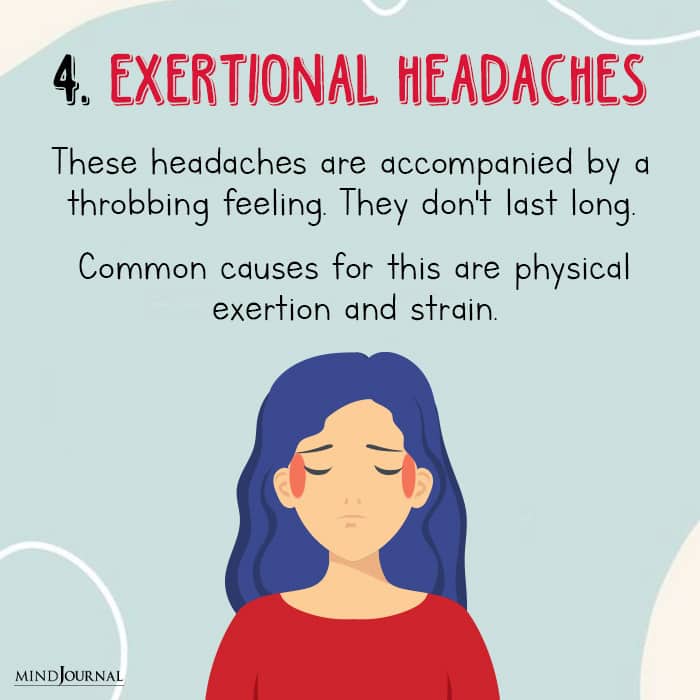
These are headaches caused by physical exertion and strain. They don’t typically last very long but are accompanied by a throbbing feeling. They can be caused by vigorous sexual intercourse as well as exercise sessions.
5. Sinus headaches:
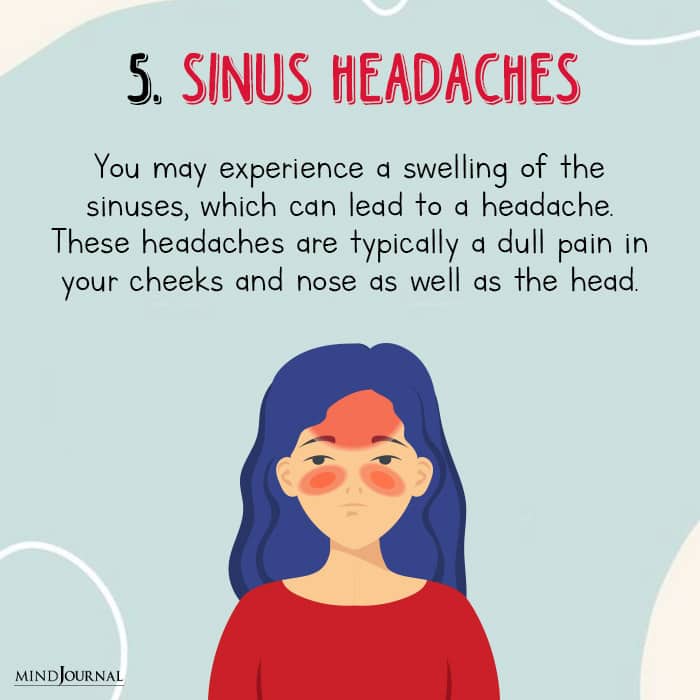
When you have a cold or other respiratory illness, you may experience a swelling of the sinuses, which can lead to a headache. Although these headaches are typically only a dull pain, and you can typically feel them in your cheeks and nose as well as the head. Treating the cause of the sinus swelling usually will get rid of the headache as well.
There are many other things that can cause a headache.
It’s extremely common to experience headaches when in withdrawal from an addictive substance.
For example, most people will experience a hangover headache after a heavy night of drinking. However, it’s also normal to experience a headache if you are in withdrawal from drugs. Many coffee drinkers will get a headache if they don’t have their caffeine in the morning since this is an addictive substance as well.
Hormones are another common cause of headaches.
Many women experience headaches just before and during their period, and it’s very common to get them during pregnancy or menopause as well because of the fluctuating hormone levels in your body.
Read 6 Pressure Points That Will Cure A headache in Less Than 5 Minutes
How To Get Rid Of A Headache
If you are suffering from a headache, there are many ways you can get rid of them. Headaches are not only uncomfortable, but they can also have a negative effect on your productivity, so it’s helpful to take steps to treat them as soon as possible if you are experiencing one. Of course, if you are experiencing very severe symptoms or if you are getting a new kind of headache for the first time, you should see a doctor rule out any more severe causes.
1. Painkillers
If you are experiencing a short-term tension headache, an over-the-counter painkiller will usually be effective for getting rid of it. However, you should avoid overusing or relying on OTC painkillers when you have a headache because they can have harmful effects on your liver in the long run.
2. Massage
A massage is an excellent way to relieve your headache. You can do it yourself or have a friend do it by applying gentle pressure to your temples and the top of your head. If you experience frequent headaches, regular massages can be effective for managing them, particularly if you believe your headaches are caused by stress.
Read CBD Oil and Massages: Good or Bad?
3. Gentle heat or cold
Another good way to soothe a headache is to apply a cold pack or hot pack to your temple. Both can be effective as long as the temperatures aren’t too extreme, it just depends on your personal preferences. Cold is excellent for soothing inflammation, while heat is very effective for relieving tension.
4. Sleep
Often the most effective way to get rid of a headache is simply to sleep it off. Since many headaches are caused by stress or lack of sleep, going to be and relaxing can help get rid of the tension and pain. If you can’t fall asleep, being in a dark room can be very helpful because it removes the external stimuli that are causing the migraine.
The more informed you are about your headaches, the easier it is for you and your doctors to treat them. In addition to painkillers, be sure to look into massage and other stress-relieving techniques to manage your headaches.
Read 20 Tips For A Better Sleep That Don’t Require A Prescription
Written by Dr. Brent Wells
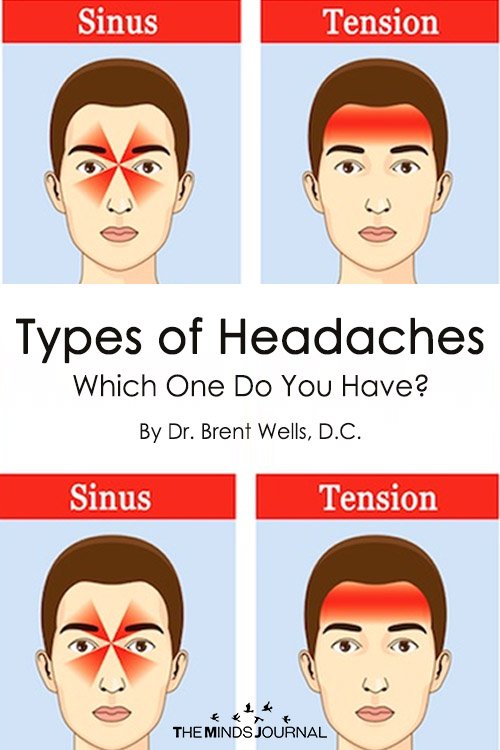
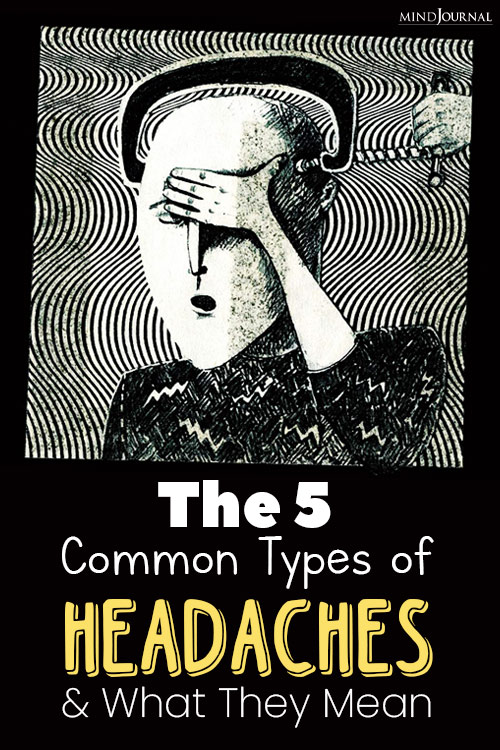


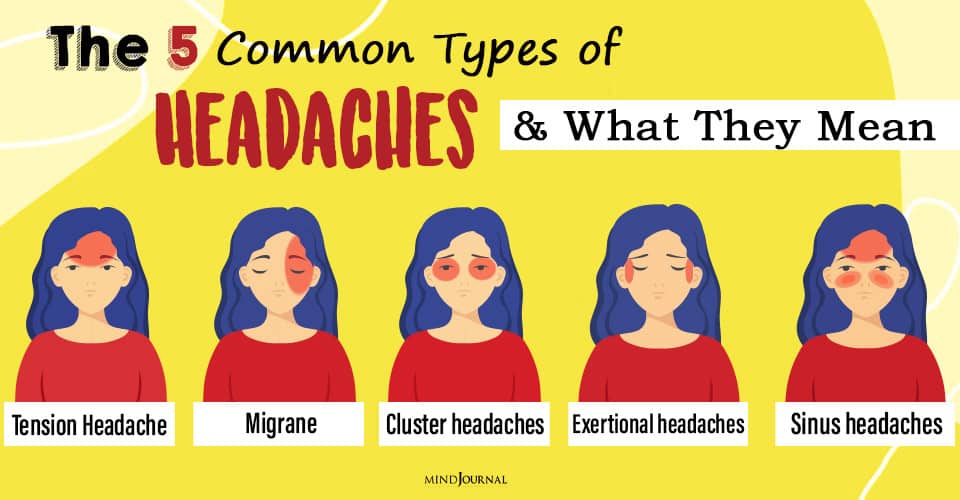



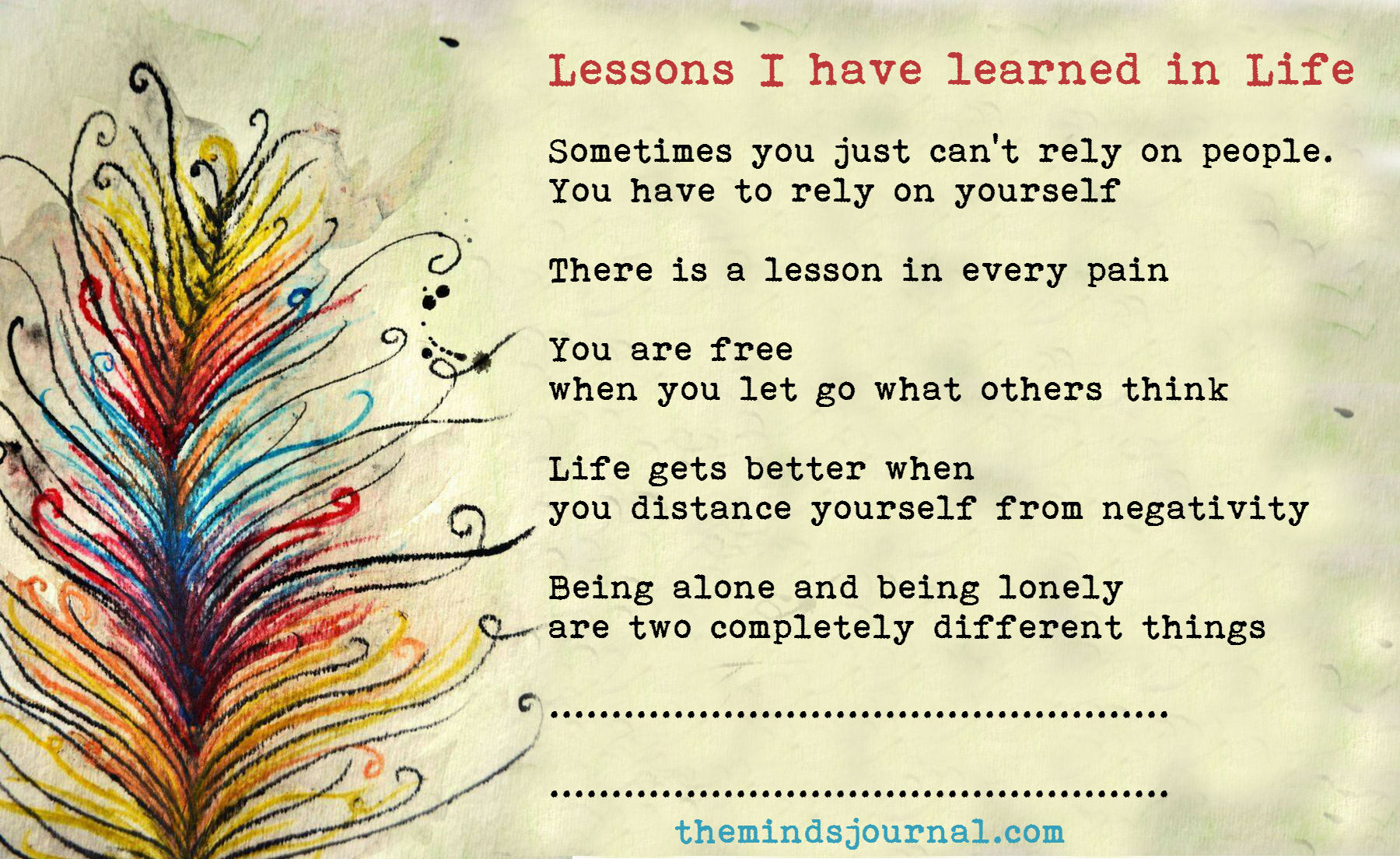



Leave a Reply